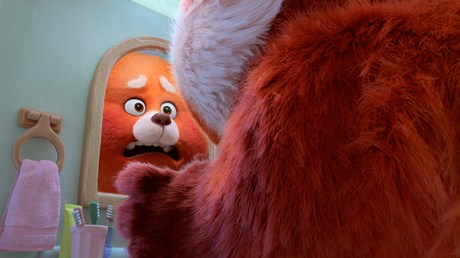The film departs from biblical wisdom on how we should deal with our inner mess.

“As Gregor Samsa awoke one morning from uneasy dreams he found himself transformed in his bed into a gigantic insect.”
So begins Franz Kafka’s “The Metamorphosis,” in which Samsa is reviled for his transformation into a mammoth cockroach. His family hides him away until he dies. Then they go on with their lives, thankful to not deal with that problem anymore.
What do we do with this absurdist 20th-century story? It’s a tale that compels readers to question our own metamorphoses or changes. Over the course of our lives, we all change and grow, so how do these developments (or, in the case of Samsa, mutations) affect those around us? After all, we do not belong to ourselves. We cannot become beasts or angels without it hurting or helping our families, friends, and neighbors.
If you’re Meilin Lee in Turning Red, however, such wisdom of age-old philosophy is seemingly disregarded.
Philosophy is about the love of wisdom, and our culture is training us to either desire or disdain wisdom. Every world religion has a different conceptualization of wisdom, but for Christians, Wisdom is Jesus Christ.
When watching Disney films, I don’t expect the animation to move my family toward that highest end (although I was surprised by Encanto), but I do hope their movies don’t persuade my children against the grain of conventional wisdom. Unfortunately, Turning Red is a film that departs from that wisdom and embraces a messy philosophy.
I had high hopes for the movie, and I watched it with my children on the day it was released. I could not wait to see a contemporary Asian hero and the foregrounding of the mother-daughter relationship. (I enjoyed Brave, and I consider ...
from Christianity Today Magazine
Umn ministry


.gif)

.gif)
.gif)
